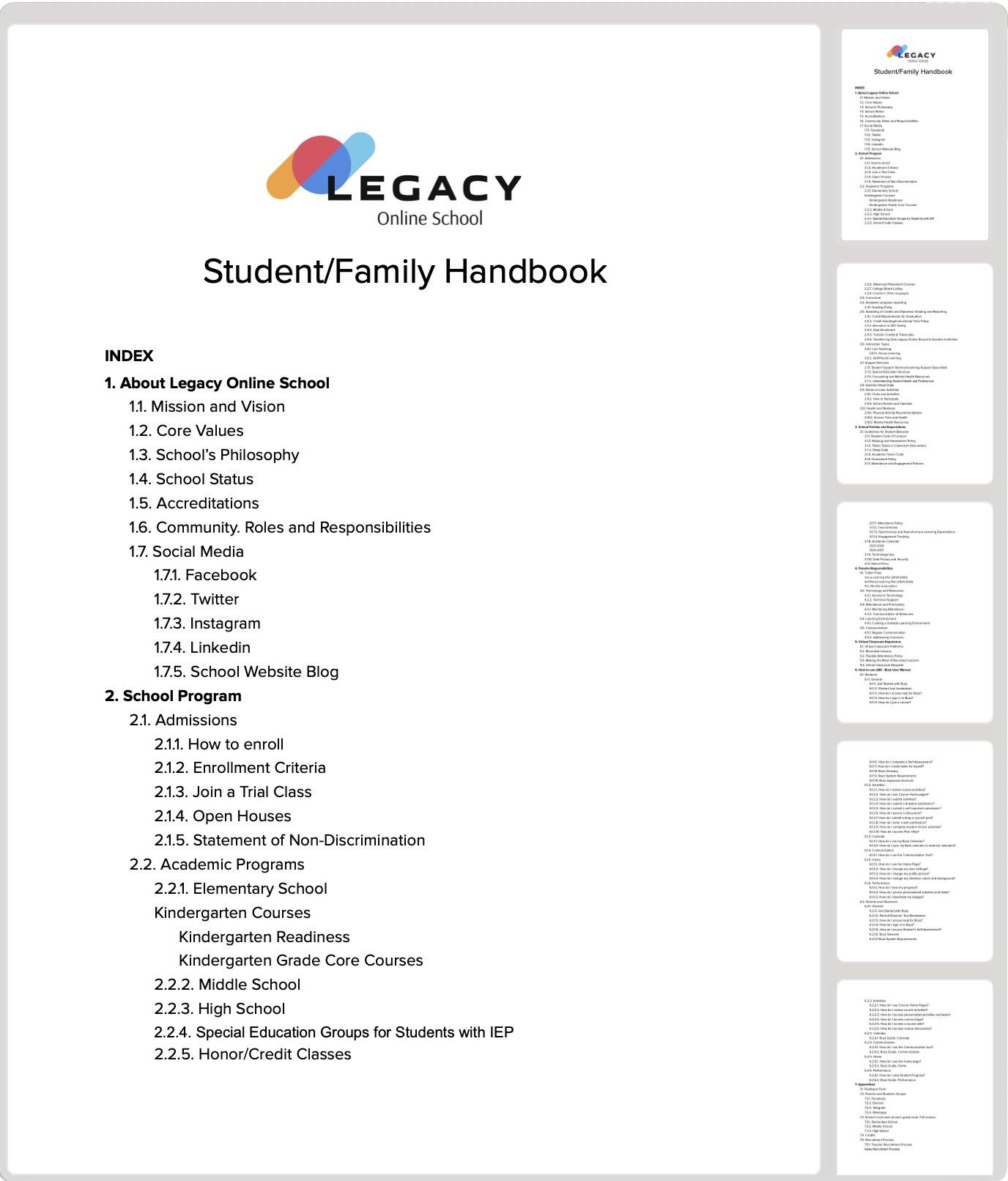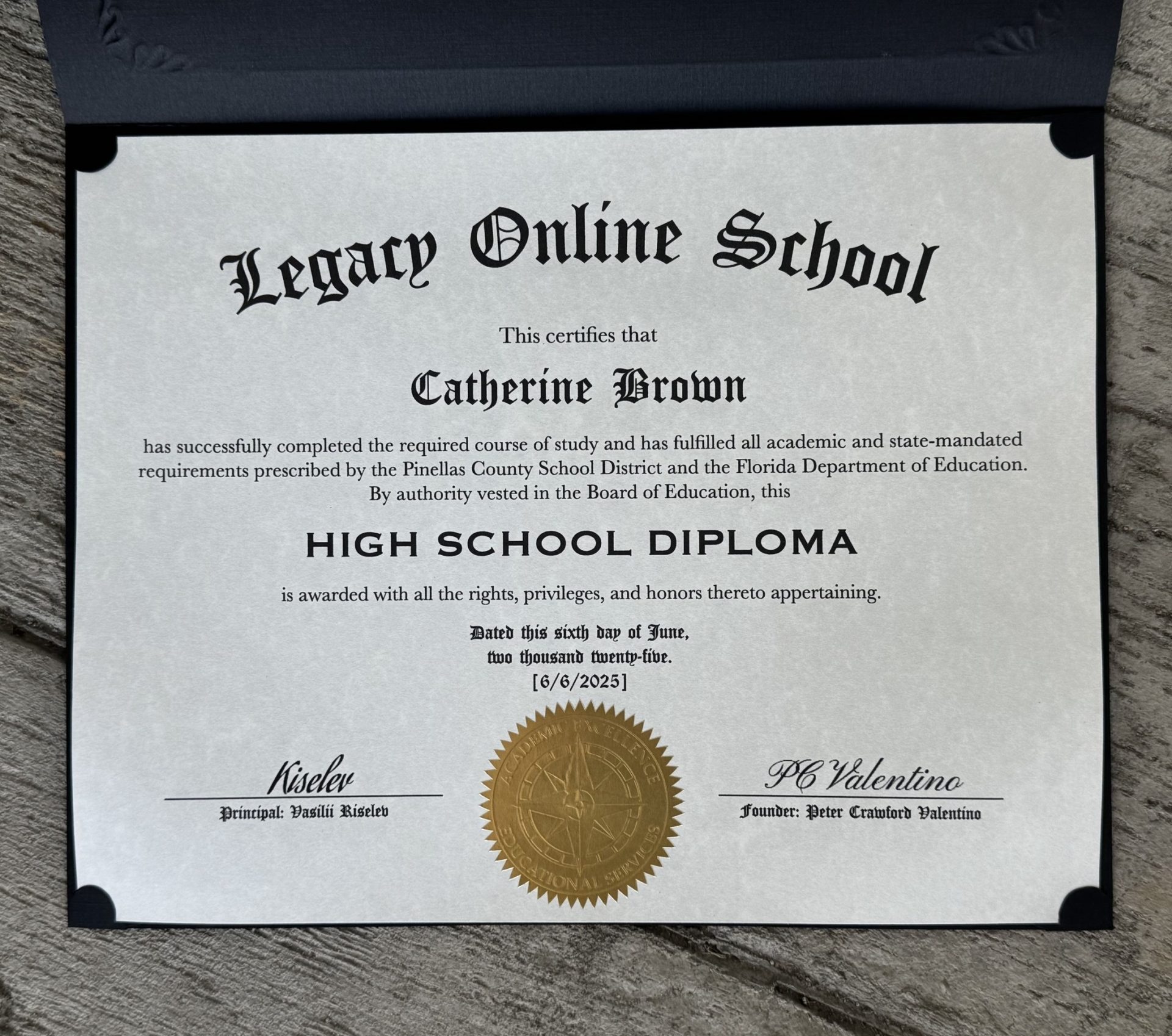Accredited Online High School Programs: K12 Flexible Learning Options
70% of students say online learning is better than traditional classroom learning, according to a survey by the University of Potomac. Accredited online high school programs are becoming a preferable choice for high schoolers. We’ll talk about what makes this stand out.
What Are Accredited Online High School Programs
These programs are also popular because they’re accredited. It’s important for students and parents to know why accredited programs are a better option.
How Do Accredited Programs Differ from Traditional High Schools
Accredited programs are offered by educational institutions undergoing thorough reviews and receiving accredited status from specialized bodies like Cognia. Accredited schools work hard to provide students with top-quality programs, certified teachers, and reliable support. Schools failing to meet high standards lose accreditation.
Accredited programs guarantee students get quality education aligned with the latest Department of Education standards, recognized nationwide. These programs offer personalized approaches, helping each student get the education they need.
Traditional high schools without accreditation follow general education standards, but overall program quality is lower. Their curriculum may not fully meet Department of Education standards, and diplomas may not be recognized everywhere. These schools provide less personalization, making it harder for students, including those with special needs, to succeed.
What Accreditation Bodies Recognize Online High School Programs
America has several accreditation bodies. These bodies operate at different levels. We will review some of the levels.
Regional accreditation agencies are responsible for accrediting schools in specific regions of the U.S. Let’s see some examples:
- North Central Association (NCA) is responsible for the North Central region
- Northwest Accreditation Commission (NWAC) is responsible for the Northwest
- Southern Association of Colleges and Schools (SACS) is responsible for the South
- Western Association of Schools and Colleges (WASC) is responsible for the West
You can find other accreditation bodies in your region. These bodies conduct the most rigorous evaluations, and schools must put in significant effort to achieve accredited status from them.
National Accreditation Agencies work with educational institutions across the entire U.S. and are focused on specific types of institutions (e.g., online schools).
These agencies include Cognia, Accrediting Commission for Schools, WASC (ACS WASC), and the National Association of Private Schools (NAPS).
State Departments of Education operate at a separate level, as some states directly accredit online high school programs within their state. For example, the Florida Department of Education accredits Florida Virtual School (FLVS).
The last level we will review is Specialized Accreditation. The Distance Education Accrediting Commission (DEAC) is an example of such a body. These bodies ensure quality in the specific educational format (e.g., online-only schools).
Legacy Online School holds accreditation from WASC and Cognia. Our school guarantees students will receive a diploma recognized in the U.S. and other countries.
Why Is Accreditation Important for Online Education
Students have access to many online programs to choose from, but not all of them offer good quality. Accreditation of an online program guarantees the materials provided meet high standards. The knowledge gained from such programs is recognized in the U.S. and other countries.
Schools offering accredited programs also invest heavily in student support, both in terms of technical assistance and academic guidance. Students receive enough attention to overcome any challenges they face.
Who Can Benefit from Online High School Programs
Online high school programs offer many benefits. Let’s take a look at who benefits the most from completing such programs.
What Are the Different Student Profiles that Thrive in Online Learning
Almost any student can succeed in online learning. Here are some types of students who have a much higher chance of success and enjoyment:
- Independent students are children with strong self-organization skills who don’t need much support. They follow the program plan on their own and enjoy learning the required material. Almost all types of online programs are suitable for them
- Online learning for students with many responsibilities is a lifeline because it gives them the flexibility to plan their studies easily around their other obligations
- Students with special needs require a personalized approach and the ability to take breaks when necessary. Online learning provides this flexibility, along with personalization and attention from teachers who continuously adapt the program to meet their needs, helping them achieve the best results
- Online learning for homeschoolers provides structured and engaging materials helping them obtain a recognized education
- Students seeking more challenging materials can find more advanced programs enriching their learning experience and provide additional challenges
How Can Online High School Programs Support Students with Unique Needs
Online programs offer a high level of flexibility and personalization. Flexibility allows children with special needs to plan their day independently, pause and return to their studies whenever they feel it’s necessary. This is especially important for students with focus issues who cannot follow a fixed schedule.
Personalization continuously adapts the program to the student’s needs. This helps to slow down and break material into simple blocks when the student struggles or avoid slowing down and oversimplifying if the student has no trouble with the material. Kids who grasp concepts easily can request more challenging materials.
Personalization also makes it easy to customize the learning format, choosing which type of content to prioritize – whether video, text, audio, or interactive materials. Every student can find what works best for them.
Are Online High School Programs Suitable for Adult Learners
Online programs are an excellent solution for any age group due to their flexibility, wide range of options, and personalization. Some adult learners find certain material more challenging, but personalization and support from the program’s team help them overcome difficulties with ease.
How to Choose the Right Online High School Program
Here are some tips for families to follow to choose an online high school program best meeting their children’s needs.
What Factors Should You Consider When Evaluating Online Programs
We covered eleven key things to consider in the article “How to Choose the Best K-12 Online School for Your Child?”. Parents and students pay close attention to these factors to choose the best online program.
How Do You Assess the Quality of Curriculum and Instruction in Online Schools
The first thing to consider is accreditation. Accreditation ensures the curriculum is of high quality and follows the correct program standards.
Families also check additional factors to determine if the program is a good fit for them. It’s important to assess the level of support provided by the online school. Independent students may require minimal support, but less independent students and those with special needs should receive maximum support, both technical and academic.
Read the program description and see how simple and clear it is. Some programs use complex descriptions, and their courses also are more complicated, making them unsuitable for everyone.
Evaluate the level of personalization provided by the teachers and whether it matches the student’s need for individual attention and guidance.
What Questions Should You Ask About Support Services and Resources
Strong support services are crucial, especially if a student is new to online learning or has special needs. Parents or students should ask the school about the support they provide. It’s important to clarify whether technical support and academic support are available.
Technical support can help resolve issues with the online program or problems with personal devices. Academic support is valuable if any material provided in the program is unclear.
What Is the Enrollment Process for Online High School Programs
Online schools are not much different from traditional ones when it comes to the enrollment process. Let’s take a look at the key features of this process.
What Steps Are Involved in Enrolling in an Accredited Online High School
Exact enrollment requirements can be found on the chosen school’s website. The general requirements you encounter usually include:
- Completing an application
- Talking with a school representative
- Signing a contract with the school
- Paying the school’s fee
Contact the school you’re interested in, so their staff can assist you with the enrollment process.
Are There Specific Eligibility Requirements for K12 Programs
Such programs, like traditional ones, may impose certain requirements on students. These requirements should be reviewed in the program description. The most common requirements are residency in a specific state with the ability to provide documentation and reaching a certain age.
How Can Parents Be Involved in the Enrollment Process
Parents decide how much they want to assist their child with enrollment. They can research programs, discuss them with their child, and help choose the most suitable one. Parents can also assist in preparing the necessary documents for the program and attend orientation participation with their child if allowed by the school.
What Are the Long-Term Benefits of Completing an Online High School Program
Studying in online high school programs offers benefits many don’t often consider. Let’s explore these benefits in more detail.
How Does an Online Diploma Impact College and Career Opportunities
An online diploma is an opportunity to achieve more. An online diploma from an accredited institution allows students to get the knowledge needed for college and future work while managing personal tasks or pursuing activities providing additional practice and skills.
Online schools offer students the chance to take different courses preparing them for college and careers, as well as join expert communities where they can learn firsthand what it’s like to work in specific professions. Many students build valuable connections in these communities, helping them land their first job.
What Skills Do Students Develop Through Online Learning that Are Beneficial Post-Graduation
Students gain knowledge in different subjects, but online learning also develops additional skills for kindergarten, elementary, middle, and high school students. The world has changed after COVID-19, and remote work has become the new norm. Online students adapt well to remote work through their studies and feel comfortable with this work style in the future.
Children develop resilience to routine and a high level of self-organization, which are highly valued by employers. Online students handle large volumes of information more easily, navigate it efficiently, and demonstrate strong analytical skills.
Online learning requires students to master many different tools and programs, each of which can be useful in their careers or personal lives. These are just some of the additional skills students get through online learning.

















